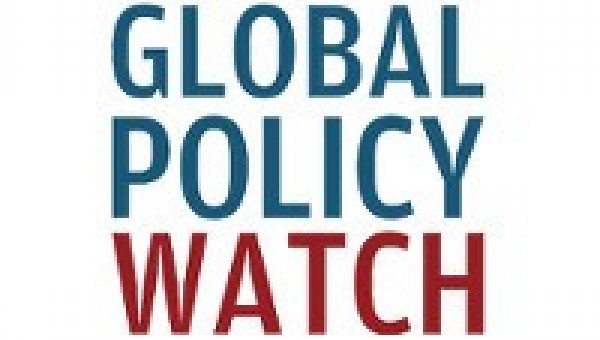News

One of the concrete commitments from the Addis Ababa Action Agreement and the 2030 Agenda for Sustainable Development (2030 ASD) is the Technology Facilitation Mechanism (TFM). Spearheaded by Brazil and France, the development of the TFM has been described by Sérgio Rodrigues dos Santos of Brazil, as a “testimony to the strength of multilateralism through collective action.”
Expectations are high for TFM in a briefing on its progress, the President of the UN General Assembly lauded the TFM launched in September 2015, which “marks an important step forward for the sustainable development agenda.” Progress to date includes the following:
1) The United Nations Inter-Agency Task Team (IATT) for Technology & Innovation for the Sustainable Development Goals
The Inter-agency Task Team (IATT) comprises 29 UN entities to date. Co-chaired by UN DESA and UNEP, the IATT has met three times. The Terms of Reference and list of members are available on the dedicated TFM webpage.
2) 10-Member Advisory Group
The 10-member advisory group, comprised of representatives from civil society, the scientific community and the private sector, will work with the IATT to prepare the multi-stakeholder forum on science, technology and innovation for the SDGs, and operationalize the online platform.
3) Multi stakeholder forum on Science Technology & Innovation (STI FORUM) for the Sustainable Development Goals
The Forum will be held 6-7 June 2016 at UN headquarters. The next planning meeting will take place 3-4 March. The IATT and 10-Member Advisory Group must identify potential sources of funding and devise a strategy for supporting the work for the TFM. Results from this meeting will feed into the STI Forum in June 2016. The HLPF will build, inter alia, on the outcome of the annual FfD Forum as well as on the summary of the STI Forum launched by the 2030 ASD as part of a TFM.
4) Online platform to facilitate the matching of technology supply and demand
According to the 2030 ASD, the online platform will complete a comprehensive mapping of and serve as a gateway for existing science, technology and innovation initiatives, mechanism and programmes within and outside of the United Nations. The IATT has explored options for an online platform with different levels of ambition and will conduct an independent technology assessment in the development of the online platform. UN Under Secretary-General Wu Hongbo explained that the IATT had contacted “firms that would be willing to carry out assessment pro bono as there are no dedicated resources for this.” He added that the IATT is also working to identify potential sources of funding and to devise a strategy for supporting the work for the TFM.
The TFM faces a challenge – not uncommon for the sustainable development agenda and the UN system-wide: inadequate funding. The Administration and Budget (5th) Committee of UN General Assembly approved only half the amount requested by the UN. Ambassador Kamau of Kenya recommended that this issue be taken back to the 5th Committee for review:
It is our expectation that the Member States and Secretariat would find the requisite resources to ensure that the critical elements of the TFM are funded AT LEAST at the seed level, even if not the entire process. It cannot be that a critical element such as the TFM is left to pro bono offers of charity and support from, I suspect, the private sector.
More information on the Technology Facilitation Mechanism, the IATT and 10-member advisory group is available on the TFM webpage.
